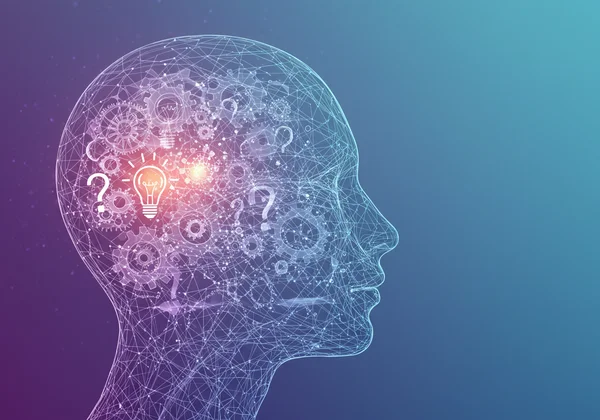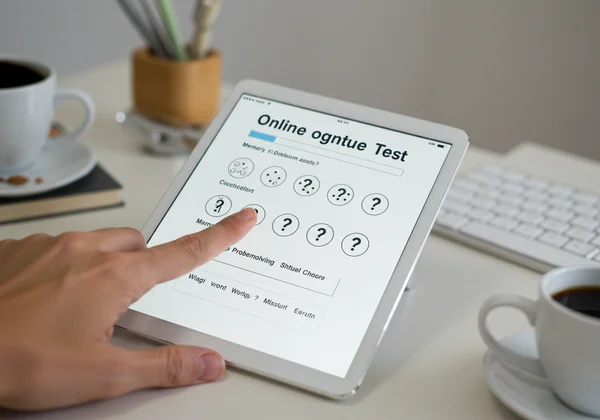Cognitive Decline: 7 Signs to Watch For & When to Take a Cognitive Test
July 27, 2025 | By Audrey Fletcher
Are you or a loved one noticing subtle changes in memory or thinking? It's natural to wonder what's normal aging and what might be a sign of cognitive decline. You might be asking yourself, what is a cognitive test and when should I consider one? Let's explore these key indicators together, with empathy and clarity. Understanding these signs is the first step toward empowering yourself with knowledge about your brain health.

Navigating these concerns can feel overwhelming, but you're not alone. Taking proactive steps can provide valuable insights and peace of mind. A comprehensive and scientifically-grounded cognitive test can serve as a powerful tool to understand your cognitive function better. If you're ready to gain a clearer picture, you can take a free online cognitive test to establish a baseline.
Understanding Common Cognitive Decline Signs to Watch For
Spotting early signs of cognitive change can make a big difference. It’s important to remember that experiencing one of these signs occasionally may be a normal part of life. However, a consistent pattern of multiple signs that impacts daily functioning warrants closer attention. Here are seven common indicators to be aware of.
![]()
More Than Just Forgetting: Persistent Memory Loss
Everyone misplaces their keys or forgets a name now and then. This is different. This type of memory loss disrupts daily life. It might involve repeatedly asking for the same information, forgetting important dates or recent events entirely, or increasingly relying on memory aids and family members for things one used to handle independently. The key is the persistence and the impact on your routine.
Difficulty with Familiar Tasks and Problem-Solving
A noticeable change can be a newfound struggle with tasks that were once second nature. This could manifest as difficulty following a familiar recipe, managing a budget, or playing a favorite card game. Problem-solving may also become challenging, such as not knowing what to do if the oven boils over or how to plan a sequence of errands. This goes beyond making an occasional error; it's a consistent struggle with planning and execution.
Challenges with Language and Communication (Word Finding)
Have you or a loved one ever stopped mid-sentence, unable to find the right word? While this happens to everyone, a significant sign of cognitive decline is when this becomes frequent. Individuals may substitute strange words, making their speech or writing hard to understand. They might also have trouble following or joining a conversation, often losing their train of thought or repeating themselves.
Disorientation in Time, Place, or Situation
Losing track of the date or forgetting what day of the week it is can be a sign of cognitive change, especially when it’s a regular occurrence. This disorientation can extend to place, where a person might get lost in a familiar neighborhood or feel confused about where they are and how they got there. This confusion about the passage of time and one's surroundings can be distressing and is a significant indicator.
Poor Judgment and Decision-Making
Cognitive function is closely tied to our ability to make sound decisions. A notable sign of decline is a consistent pattern of poor judgment. This could involve making unwise financial decisions, like giving large amounts of money to telemarketers, or paying less attention to personal grooming and hygiene. This shows a shift in how one assesses situations and understands consequences – a crucial cognitive skill.
Changes in Mood, Personality, or Behavior
Significant shifts in mood and personality can also signal cognitive changes. A person might become unusually confused, suspicious, depressed, fearful, or anxious. They may be easily upset, both at home and in unfamiliar situations. Someone who was once social and outgoing might become withdrawn and passive. These changes are often confusing for both the individual and their family.
Misplacing Items and Inability to Retrace Steps
We all misplace things from time to time. The concerning sign is putting items in unusual places—like putting a wallet in the freezer—and being unable to retrace one's steps to find them. The person may even accuse others of stealing the missing items. This is different from simply forgetting where you put your glasses; it involves a breakdown in spatial awareness and logical thinking.
When to Consider a Cognitive Test for Seniors and Concerned Individuals
If you recognize some of these signs in yourself or a loved one, the next logical question is, "What should I do?" This is where a cognitive assessment test can be an invaluable tool. It provides objective data, moving beyond subjective worries and feelings.

Distinguishing Normal Aging from Potential Concerns
It's vital to distinguish between normal age-related memory lapses and more significant cognitive problems. Forgetting parts of an experience is normal; forgetting the entire experience is not. Being unable to find the right word immediately is normal; substituting unusual words or stopping conversations is a concern. An objective cognitive function test helps create a clearer picture by measuring performance across various domains against established norms for your age group.
The Value of a Baseline Cognitive Assessment
One of the most powerful reasons to take a cognitive test is to establish a personal baseline. Think of it as a snapshot of your brain's performance at a specific point in time. Our comprehensive assessment, developed by neuropsychologists and data scientists, evaluates 22 core cognitive skills. This provides a holistic view of your strengths and challenges.
Having this baseline is incredibly useful for future comparison. It allows you to track changes over time and provides objective, data-driven information that you can share with a healthcare professional. It transforms a vague concern into a measurable data point, empowering you to take control of your cognitive health management. Why not get your baseline today?

Empowering Yourself with Cognitive Health Insights
Recognizing the signs of cognitive decline is not about causing alarm; it's about fostering awareness and encouraging proactive steps. By understanding what to look for and knowing when to seek more information, you can move from a place of worry to one of empowerment. In this journey, knowledge is your most powerful tool.
Taking a comprehensive, scientifically-backed online cognitive test is a simple, accessible first step. It can provide the clarity needed to understand your current cognitive state and plan for the future. Take control of your cognitive health journey today. Start your test now and gain the insights you deserve.
Your Questions About Cognitive Decline & Testing Answered
What are the common warning signs of cognitive decline?
The most common signs include persistent memory loss that affects daily life, difficulty with familiar tasks, new problems with language and communication, disorientation to time or place, and noticeable changes in judgment, mood, or personality. If you observe a pattern of these signs, considering a cognitive assessment is a sensible next step.
Can I take a cognitive test online for free?
Yes, you can. Our platform offers a comprehensive, scientifically-validated free cognitive test designed by experts. It assesses 22 different cognitive skills to give you a detailed and reliable overview of your brain health from the comfort of your home. You can try our free tool to receive an immediate summary and an optional AI-enhanced report.
What if a cognitive test shows concerning results?
First, do not panic. An online screening tool provides valuable information, but it is not a medical diagnosis. If your results indicate potential challenges, the best course of action is to print the report and discuss it with a qualified healthcare professional, such as your doctor or a neuropsychologist. The report can serve as an excellent starting point for a productive conversation about your cognitive health.
How is an online cognitive test different from brain games?
This is a great question. Brain games are designed primarily for entertainment and to practice specific skills. A scientific cognitive assessment test, like the one offered on our platform, is a standardized tool designed to measure a wide range of cognitive abilities systematically. It is built on principles from established neuropsychological assessments (like CogniFit and WJIV COG) to provide a reliable and comprehensive profile of your cognitive function, not just to train one skill.